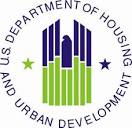FHC AND CITY OF BOYNTON BEACH SETTLE ALLEGATIONS THAT MORATORIUM DISCRIMINATED AGAINST PEOPLE WITH DISABILITIES
- At November 29, 2018
- By fhfla
- In News
 0
0
The Fair Housing Center of the Greater Palm Beaches, Inc. (FHC) and Dr. Love Predelus have reached a Conciliation Agreement with the City of Boynton resolving a HUD complaint that the City’s moratorium discriminated based on disability.
The agreement is the result of a FHC complaint filed on March 29, 2017 with the United States Department of Housing and Urban Development (HUD) alleging that the City violated the Fair Housing Act, Section 504 of the Rehabilitation Act, and the Americans with Disabilities Act, through instituting a six-month long moratorium on group home permitting in the City. The moratorium included homes that serve persons with disabilities. In addition, the FHC alleged that the actions taken by the City violated, interfered with, and frustrated the FHC’s ability to foster and promote equal housing opportunities and eliminate unlawful discriminatory housing practices.
As part of FHC’s efforts to counteract and deter what it alleged in the HUD complaint the FHC identified an additional complainant. On June 21, 2017, Dr. Predelus, owner of Summers Rain Assisted Living Facility, filed a complaint with HUD alleging that due to the moratorium on group home permitting, the City violated the Fair Housing Act, Section 504, and the ADA by delaying her ability to open up a group home serving persons with disabilities (which included veterans) in the City of Boynton Beach.
The City of Boynton Beach denied all allegations and in the interest of cooperation and collaboration the FHC, Dr. Predelus and the City of Boynton Beach have agreed to settle the claims in the underlying actions by entering into this Conciliation and Voluntary Compliance Agreement (Agreement).
Under the terms of the Conciliation Agreement, if the City intends to implement any ordinances or resolutions that relate to group homes for persons with disabilities, the City will to notify the public in its usual course, as well as FHC, of any such proposed legislative action, and meaningfully consider any responsive comments, including by FHC, received prior to enactment of any such ordinance or resolution. In addition, the City will facilitate a training and also distribute a copy of the Agreement to all City officials, staff, including elected, appointed, and/or hired positions and upon request, the public.
The FHC will work in partnership with the City by providing training, additional Fair Housing information and updates, apart from other existing partnerships the City has regarding Fair Housing Education and it’s HUD mandated obligations to Affirmatively Further Fair Housing within the City of Boynton Beach.
Group homes serve a very important role in this nation by assisting individuals with a wide rage of disabilities, such as chronic mental disorders that impair one’s ability to live independently. In addition, groups homes are crucial in assisting veterans, spousal abuse victims, those with drug and alcohol additions and helps fight homelessness.
Municipalities receiving federal funds must fully comply with the Fair Housing Act, as amended in 1988, 42 U.S.C. 3601 et seq., Section 504 of the Rehabilitation Act of 1973, 29 U.S.C. 794, and Title II of the Americans with Disabilities Act of 1990, 42 U.S.C. 12131 et seq. in all programs. Failure to do so could result in the lost of much needed funding for the community.
“We commend the City of Boynton Beach for stepping to the table in a pro-active manner to resolve this matter and the FHC looks forward to working with them in the future”, stated Vince Larkins, FHC President and CEO.
HUD Charges Florida Company, Couple, with Discriminating Against Hispanic Homeowners
- At September 11, 2018
- By fhfla
- In News
 0
0
WASHINGTON – The radio and television commercials seemed too good to be true; promising Hispanic homeowners to cut their mortgage payments in half, even offering $500 gift cards to entice them to sign up for loan modification assistance. But it was too good to be true, and today the U.S. Department of Housing and Urban Development (HUD) is charging a Florida company and its owners with housing discrimination for intentionally targeting Hispanic homeowners in a predatory mortgage modification scheme that increased, rather than decreased, their risk of foreclosure. Read HUD’s charge.
The Fair Housing Act prohibits discrimination because of national origin in housing and housing related services, including home mortgage and loan modification services. This includes targeting persons because of their national origin for fraudulent modification services.
HUD claims that Advocate Law Groups of Florida, P.A., Jon B. Lindeman, Jr., and Ephigenia K. Lindeman violated the Fair Housing Act by intentionally targeting Hispanic families through a deceptive advertising campaign that aired on Spanish-language radio and television stations throughout Florida.
“As we peeled back the facts of this case, we were stunned by a business model built to target Hispanic homeowners,” said Anna María Farías, HUD’s Assistant Secretary for Fair Housing and Equal Opportunity. “HUD will use the full weight of the law to protect families from those who would prey upon them because of where they come from or what language they speak.”
HUD’s charge, filed on behalf of three Orlando-area Hispanic families, alleges that at initial client meetings, Spanish-speaking ALG employees made false promises to entice families into paying significant upfront fees and to sign contracts that were predominantly, if not entirely, written in English. After being retained, ALG knowingly placed their clients’ homes at imminent risk of foreclosure by instructing homeowners to stop making mortgage payments and to cease communicating with their mortgage lenders or servicers.
In addition, HUD’s charge alleges that ALG neglected their clients’ cases and ignored bank requests for information. When homeowners complained about their mistreatment, ALG threatened them with increased mortgage payments, fines, or foreclosure if they sought to terminate their relationship. ALG ultimately failed to obtain favorable mortgage modifications for their clients, while charging them thousands of dollars in up-front and recurring monthly fees.
“Intentionally targeting families with predatory mortgage services because of their national origin is a clear violation of the Fair Housing Act,” said Paul Compton, HUD’s General Counsel. “This charge sends a clear message that HUD will protect the housing rights of all persons to the fullest extent of the law.”
Federal Court Upholds Jury Verdict in Predatory Lending Case
- At August 30, 2018
- By fhfla
- In News
 0
0
On August 30, 2018, Judge Sterling Johnson of the U.S. District Court for the Eastern District of New York upheld a June 2016 jury verdict finding that Emigrant’s predatory loans violated the Fair Housing Act and other civil rights laws. Concluding that a waiver provision signed by two of the plaintiffs was void, and that the jury’s award was insufficient to make the plaintiffs whole, the Court ruled that they are entitled to a new trial on damages.
DOJ aims to Tackle Sexual Harassment in U.S. Housing
- At July 26, 2018
- By fhfla
- In News
 0
0
(Courtesy of UPI)— The U.S. Department of Justice launched a major new visual campaign Monday to bring out into the open what it sees as an under-reported issue — sexual harassment by landlords.
The campaign is presented in a 60-second video featuring the stories of three women involved in sexual harassment lawsuits brought by the Justice Department under the Fair Housing Act.
The goal of the campaign is to address the issue of harassment by landlords, property managers, maintenance workers, loan officers or other people who have control over housing.
Officials say women who are poor or have limited housing options are particularly vulnerable to such harassment, which is illegal under the Fair Housing Act. It might include demanding sexual favors from tenants or creating a hostile environment.
One woman, Autumn Weaver, told The Hill she received eviction notices while living in public housing in Kansas City and her property manager said he’d help, in exchange for sexual acts.
“He was like, well, if you don’t sleep with me than the sheriffs will be putting you out on Monday,” she said. “I felt like no one would listen to me. He had more power than I did. I was just a tenant. He was a property manager.”
The campaign is a joint effort between the Justice Department and U.S. Department of Housing and Urban Development to raise awareness and make it easier for victims to find support — particularly now, in the #MeToo era.
“Unfortunately, there are still too many landlords and managers who attempt to prey on vulnerable individuals,” said Civil Rights Division Asst. Attorney General John Gore. “Our goal at the Justice Department is to make more people aware that no one should have to choose between a home and the right to be free from sexual harassment.”
The initiative announced earlier this year includes a task force, an outreach toolkit and the awareness campaign, which includes social media and public service announcements.




